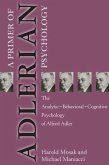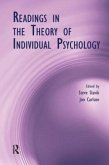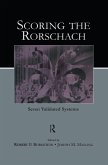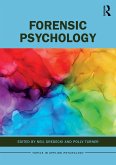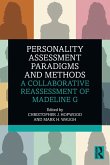Our present and our past are manifestly intertwined. Memories are not identical simulations of the past, but are stories shaped by our current perspectives of others, the world, and ourselves. As a result, the gathering of early recollections can be used as a projective technique that indicates our strengths, goals, lines of movement, fears, and a host of other relevant psychological data. Early Recollections are a quick, accurate, and cost-effective personality assessment demonstrated to have similar reliability and validity to other personality measures.
Both a comprehensive and accessible text, Early Recollections: Interpretative Method and Application presents a constructivist approach and systematic development of early recollection theory. Mosak and Di Pietro invite students to think and actively engage in problem solving rather than merely read for content. Supported by step-by-step examples, this book also offers a perspective suitable for application by Adlerian practitioners, non-Adlerian clinicians, and all other mental health professionals and students seeking a new framework for evaluating personality.
Both a comprehensive and accessible text, Early Recollections: Interpretative Method and Application presents a constructivist approach and systematic development of early recollection theory. Mosak and Di Pietro invite students to think and actively engage in problem solving rather than merely read for content. Supported by step-by-step examples, this book also offers a perspective suitable for application by Adlerian practitioners, non-Adlerian clinicians, and all other mental health professionals and students seeking a new framework for evaluating personality.
'This is the most extensive review yet of the use of early childhood recollections as a projective technique for understanding psychodynamic motivations and behavioral styles. The authors have long experience in this field. The book is very informative and easy to read and would make an excellent text and practice manual.' - Bernard H. Shulman, M.D., FAPA, former Professor of Psychiatry at Northwestern University and at Loyola Medical School, Distinguished Professor at the Adler School of Psychology
'This book is a friendly manual with an amazing array of recollections and cases superbly described, dissected, and detailed for real understanding and use of the Adlerian method. The comprehensive coverage of all aspects of early recollection theory, research, and clinical application will serve both the novice and expert.' - Guy Manaster, Ph.D., Charles H. Spence Centennial Professor in Education in the Department of Educational Psychology at the University of Texas at Austin
'This book is a friendly manual with an amazing array of recollections and cases superbly described, dissected, and detailed for real understanding and use of the Adlerian method. The comprehensive coverage of all aspects of early recollection theory, research, and clinical application will serve both the novice and expert.' - Guy Manaster, Ph.D., Charles H. Spence Centennial Professor in Education in the Department of Educational Psychology at the University of Texas at Austin


